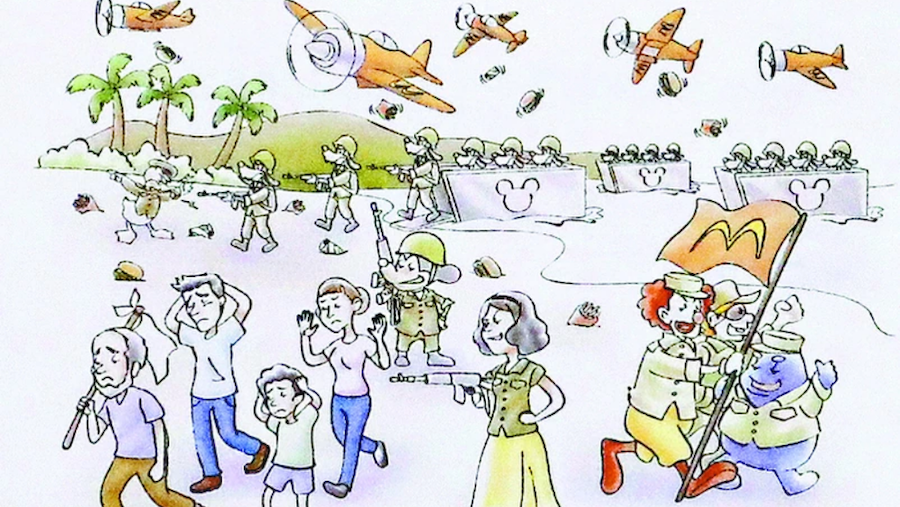A new textbook for local schools’ “Citizenship and Social Development” depicts the west—portrayed by icons like McDonald’s and Disneyland—as “invaders” threatening Chinese culture.
The textbook, published by Marshall Cavendish Education, also suggests that western holidays like Christmas should not be celebrated by non-religious people as they represent a “culture clash” with Chinese customs.
“Going with the flow to identify with Christianity and Christmas would unintentionally contribute to the spread and proliferation of Christianity in China,” the book reads, citing an article written by a mainland Chinese scholar.
“Citizenship and Social Development” is a compulsory course for all local secondary students starting from Form 4. The course replaced the Liberal Studies curriculum, which teaches critical thinking through learning about societal issues.
During the 2014 and 2019 protests, Liberal Studies was blamed for radicalizing Hong Kong youth and turning them against the authorities.
/cloudfront-ap-northeast-1.images.arcpublishing.com/appledaily/OQQGKGLHI5A2FDWBY56ZMK7IYQ.jpg)
Some have criticized the book, likening it to propaganda and expressing worry that it could narrow students’ horizons.
Ip Iam-chong, a cultural studies professor at the Lingnan University said in an Apple Daily interview that the book is nationalistic and biased, adding that teaching materials should highlight multiple perspectives.
According to Sing Tao Daily, the Education Bureau reiterated that the textbook has not undergone mandatory government-led vetting and is not part of any official book list.
The book also includes illustrations of characters in military uniforms aiming guns at people with their hands in the air, as if surrendering in defeat. The cartoon suggests that western forces are cultural imperialists bullying a local population.
The new “Citizenship and Social Development” course will be taught for the first time in the coming academic year.
Hong Kong Professional Teachers’ Union Vice-President Tin Fong-chak blasted the rebranded curriculum in an interview with HK01.
“The new subject only focuses on national achievement, which contradicts its aim of developing students’ independent thinking,” he said.




